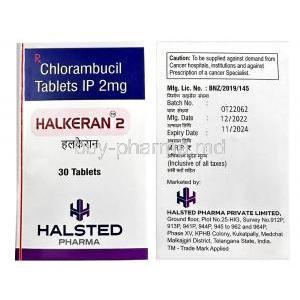Leuprolide Acetate
- 1. Introduction to Leuprolide Acetate
- 2. Mechanism of Action
- 3. Approved Uses of Leuprolide Acetate
- 4. Off-Label Uses of Leuprolide Acetate
- 5. Dosage and Administration
- 6. Side Effects of Leuprolide Acetate
- 7. Serious Side Effects and Warnings
- 8. Contraindications and Cautions
- 9. Administration Considerations in Special Populations
- 10. Storage and Handling of Leuprolide Acetate
- 11. Overdose Management
1. Introduction to Leuprolide Acetate
Overview of Leuprolide Acetate
Historical Background and Development
Chemical Structure and Composition
2. Mechanism of Action
How Leuprolide Acetate Works in the Body
The Role of Gonadotropin-Releasing Hormone (GnRH)
Impact on Hormone Levels and Endocrine Function
3. Approved Uses of Leuprolide Acetate
Treatment of Prostate Cancer
Management of Endometriosis
Use in Uterine Fibroids
Central Precocious Puberty Treatment
Breast Cancer Treatment
Other FDA-Approved Indications
4. Off-Label Uses of Leuprolide Acetate
Fertility Preservation in Cancer Patients
Treatment of Gender Dysphoria
Use in Chronic Pelvic Pain
Management of Paraphilic Disorders
Leuprolide acetate injection uses in ivf
Other Investigational Uses
5. Dosage and Administration
Recommended Dosages for Different Conditions
Forms and Strengths Available
Injection Techniques and Sites
Dosage Adjustments in Special Populations
Patient Instructions for Use
Leuprolide acetate trigger shot
6. Side Effects of Leuprolide Acetate
Overview of Common Side Effects
Hot Flashes and Sweating
Headaches and Migraines
Bone Density Loss
Mood Changes and Depression
Gastrointestinal Symptoms
Leuprolide acetate ivf side effects
7. Serious Side Effects and Warnings
Cardiovascular Risks
Risk of Osteoporosis and Bone Fractures
Hypersensitivity Reactions
Pituitary Apoplexy
Monitoring Requirements and Risk Mitigation
8. Contraindications and Cautions
Absolute Contraindications
Cautions in Patients with Specific Conditions
Potential Drug Interactions
Important Precautions for Safe Use
9. Administration Considerations in Special Populations
Use in Elderly Patients
Administration in Pregnant Women
Precautions for Nursing Mothers
Use in Pediatric Populations
10. Storage and Handling of Leuprolide Acetate
Recommended Storage Conditions
Shelf Life and Stability
Safe Handling and Disposal Instructions
Transport and Temperature Control Requirements
11. Overdose Management
Signs and Symptoms of Overdose
Immediate Steps to Take in Case of Overdose
Long-term Management and Monitoring
Potential Complications from Overdose
Leuprolide Acetate FAQ
- What is leuprolide acetate?
- What is the drug leuprolide acetate used for?
- What are the benefits of leuprolide?
- How long can you take leuprolide?
- Is leuprolide a chemotherapy drug?
- What is the effectiveness of Leuprorelin?
- Does leuprolide acetate need to be refrigerated?
- How often is leuprolide acetate injection?
- What happens when you stop Lupron injections?
What is leuprolide acetate?
It is a medication prescribed for addressing prostate cancer and issues related to the endometrium and uterine fibroids.
What is the drug leuprolide acetate used for?
Leuprolide is a drug employed in the treatment and care of prostate cancer, as well as conditions, like endometriosis and uterine fibroids, that are related to sex hormones and precocious puberty.
What are the benefits of leuprolide?
Endometriosis refers to a condition where the tissue that normally lines the uterus grows in other parts of the body. This can lead to pain and irregular menstrual cycles. It is often treated with Lupron Depot.
How long can you take leuprolide?
For adults, a dosage of 11,25 milligrams should be injected into a muscle every three months for 1 to 2 doses, with the treatment lasting for a total of 12 months. Children should consult their doctor for guidance on dosage and usage.
Is leuprolide a chemotherapy drug?
Eligard (leuprolide acetate), unlike chemotherapy is actually a hormone medication prescribed for managing prostate cancer in palliative care settings.
What is the effectiveness of Leuprorelin?
Leuprorelin is generally well accepted by men and has been shown to effectively lower testosterone levels in the blood to castration levels (<50 ng/dl (< 2 nmol/L)) along, with reducing prostate antigen levels as well. Common side effects reported were flashes and minor liver function issues.
Does leuprolide acetate need to be refrigerated?
Please store Leuprolide Acetate in its packaging at room temperature, below 77º Fahrenheit until you are ready to use it and once opened refrigerate it in the packaging without freezing it while also keeping it protected from light.
How often is leuprolide acetate injection?
The dosage might require alterations based on fluctuations, in body weight and LUPRON DEPORT PED should be given via an intramuscular injection every 3 months (12 weeks). Alternatively it can also be administered once every 6 months (24 weeks).
What happens when you stop Lupron injections?
You shouldn't abruptly discontinue Lupron treatment as it could lead to an increase in testosterone levels and potentially worsen your cancer condition; always consult your healthcare provider before making any changes to your medication regimen.




















